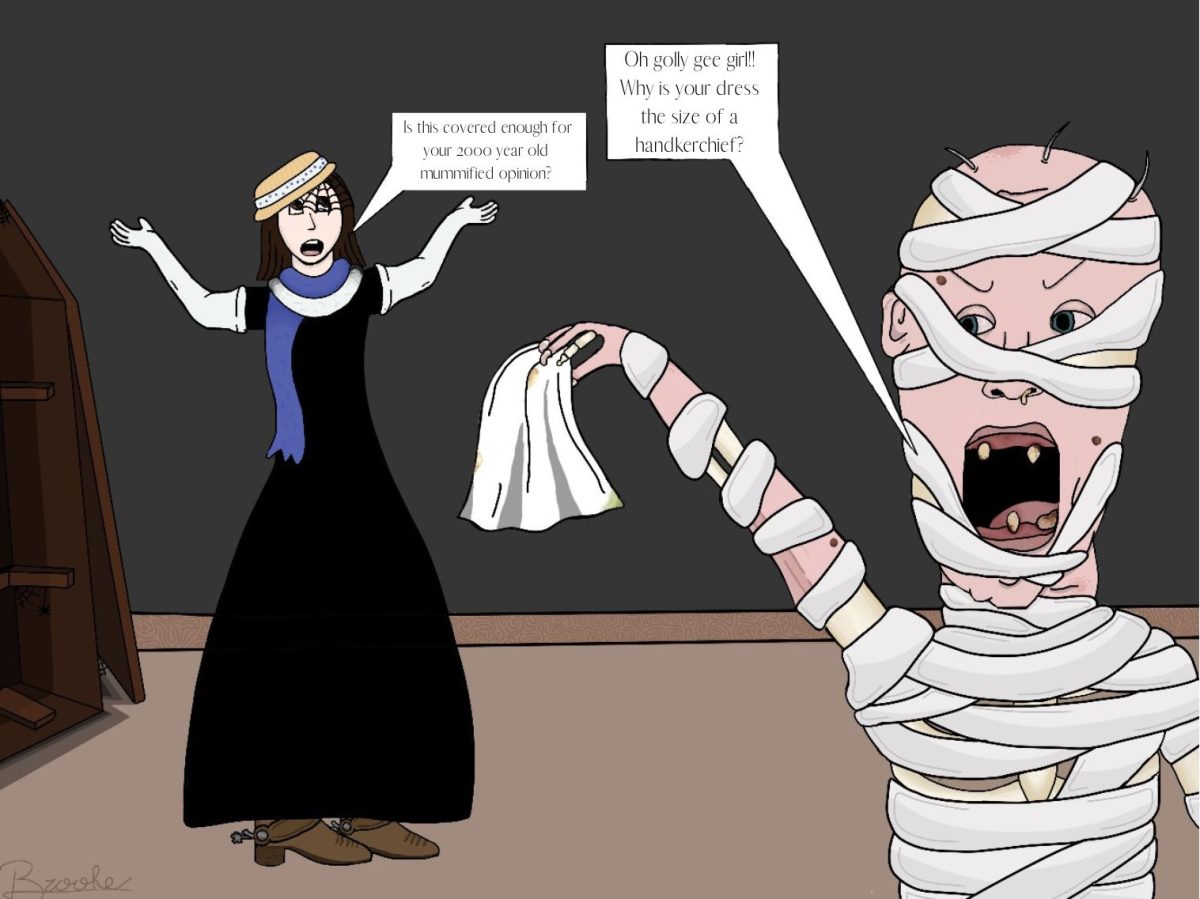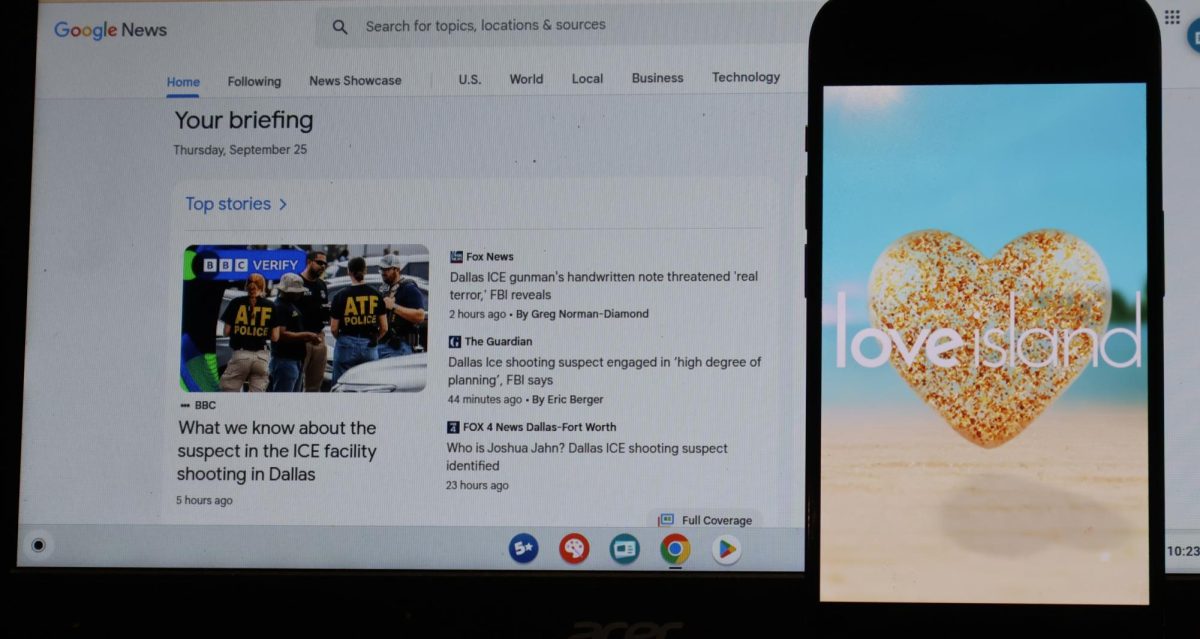Inclusive beauty, described as the easy accessibility of cosmetic products towards all customers, has been missing in the American beauty industry for years. It was normal to walk into a Sephora or Ulta and see foundation lines that only included lighter shades, making it difficult for people of darker skin tones to have the opportunity to do their makeup. In 2017, Rihanna saw this as an opportunity to right a wrong, and was one of the first to bring inclusive beauty to the market with the launch of her cosmetic company Fenty Beauty.
Fenty Beauty has been credited as one of the most inclusive makeup brands, and rightfully so.
Upon its launch, Fenty Beauty’s Pro Filt’R foundation included forty shades, an unforeseen amount for its time. In years past, the company has even released ten more shades. This launch paved the way for the inclusive beauty campaign, and today, many other brands have followed in the footsteps of Rihanna.
With the amount of companies on the market that now create inclusive beauty products, it’s become inexcusable for others not to do the same, but Korean beauty is the exception.
In recent years, Korean beauty has become a global phenomenon. With the rise in popularity of K-pop and K-dramas throughout western mainstream culture, the skincare brands these celebrities were using were able to piggyback off of this growing attention. Today, Koreans are now known for having the best skincare and their cosmetic industry is also gaining traction worldwide.
Recently, Tirtir, a Korean beauty brand, became popular on TikTok for its Mask Fit Red Cushion foundation line. Its growing popularity is credited to beauty influencer Miss Darcei who documented their shade range extension journey and has recently partnered with them to promote the extended line; the foundation is now available in thirty different shades. While this is a pivotal moment in the K-Beauty industry, I do not believe that beauty brands in Korea should hold themselves up to this standard.
When a K-Beauty brand creates products, they are exclusively making products for Koreans, who are usually known for being of fair complexion. Korea is a country that is mainly made up of Koreans– about 96%— with very few foreigners; it’s known to be one of the most ethnically homogeneous countries in the world. Unless they’re aiming to globalize their company, K-Beauty brands typically aren’t looking to market their products towards anyone except their primarily Korean audience. It’s unfortunate that until now, lighter shades were always easily accessible in America while darker shades got the short end of the stick, but we shouldn’t criticize K-Beauty brands for only having a shade range catered towards Koreans specifically. It’s called Korean Beauty for a reason.
Demographic Pie Chart by Kailie Sicolo
When people question the difference between a K-Beauty brand exclusively making light shades and an American one, the answer is simple: marketing and demographics. When an American cosmetic brand creates products, they have to account for the demographic of the United States. Here in the U.S., we have people with all kinds of skin tones, and brands are expected to cater towards everyone.
In addition to this, Tirtir’s expansion is heavily credited to its popularity on TikTok. When the Tirtir foundation was first released, it included three very light shades. Creators on TikTok reviewed the foundation line and begged the company to release more shades, causing word of the company to be spread throughout the app’s algorithm.The popularity they gained from TikTok allowed them to market their product towards other people, and Tirtir expanded their range to what is now their current number of thirty shades in order to keep their growing number of customers happy. This just goes to show that the reason Tirtir has climbed the ladder of the Korean Beauty industry is because they were in the right conditions to do so. Without the mass attention on them as a brand through social media, they wouldn’t have felt pressured by people outside their main customer circle to expand their shade range.
There is absolutely no reason why, in this day and age, people of darker skin tones should be struggling to find beauty products that work for their complexion, and there is no excuse for international companies to exclude them from their lines. The keyword here, however, is “international.” K-Beauty companies shouldn’t feel the same pressure to uphold the standards that we would place onto companies that market their products towards everyone. There’s a huge difference between when a company has the intention to exclude a large group of people, and when a company specifically caters towards their main market. It’s not racist, it’s just smarter business practice.


![Working in the Student Success Office, Attendance Secretary Lordis Depiazza inputs a student’s absence excuse note. Students are required to bring an excuse note to the attendance office within three days of any absence. “Reminding students that being in school is important because it reflects towards your grades and being able to do any activities with the school,” Depiazza said. “[It] seems to get the students' attention about wanting to be in school.”](https://southwestshadow.com/wp-content/uploads/2025/10/IMG_8313-1200x800.jpg)

![Squaring up to a practice dummy, sophomore Cypher Andres prepares to throw a punch. Dummies are regularly used to help him prepare certain hits to take his opponents down. “[Boxing dummies help me practice] because it’s basically a model of the body,” Andres said. “It helps with accuracy, such as pressure points behind the ear, and a clean liver shot can end the fight.”](https://southwestshadow.com/wp-content/uploads/2025/10/IMG_5728-e1759850486200-1200x864.jpg)

![Arranging the fabric on the floor for a new project, senior Sapphyre-Ann Leung plans out her attire for the next deadline. With the recent closures, students now had limited resources and less margin for error with the fabric and materials they had in stock while trying to reach strict deadlines. “Joann’s had a lot of high-end fabric for our fashion competitions,” Leung said. “We couldn’t just buy ten yards of fabric from Hobby Lobby or Walmart. Since [Joann Fabrics] is no longer open, we have to buy items online, which is way more expensive.”](https://southwestshadow.com/wp-content/uploads/2025/10/IMG_0038-1200x800.jpg)






